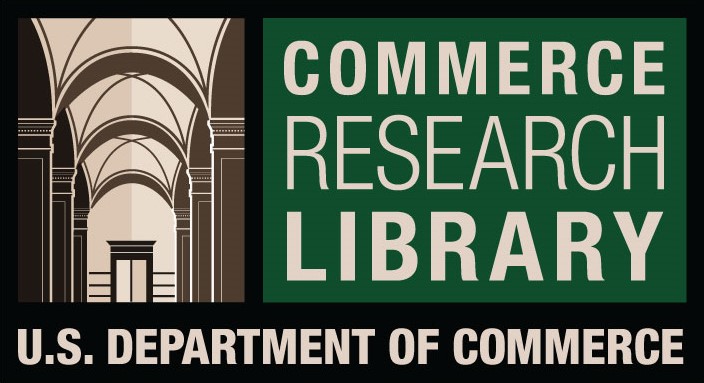Psychological Well Being of School Counselors
DOI:
https://doi.org/10.61841/cjv6cr78Keywords:
Psychological Well-Being, Self-Compassion,, School Counsellors.Abstract
National development and government initiatives in realizing educational transformation has made the profession of school counsellors facing a challenging and vulnerable role with stress that affects their well-being. Aspects of psychological well-being of school counsellors need to be explored and understood to ensure their services in schools are implemented effectively. The study aims to understand contribution of self-compassion to psychological well-being among school counsellors. The results of the previous studies have found that; (i) self- compassion contribute to the psychological well-being of school counsellors; and (ii) good psychological well- being of teachers can improve the quality of counselling services. The implication of this study explains the need to improve psychological well-being among school counsellors. Proposed follow-up recommendations need to be done by focusing on quantitative studies aimed at better understanding of this issue.
Downloads
References
1. American Counseling Association. (2014). ACA code of ethics. http://www.counseling.org/docs/ethics/2014-aca-code-of-ethics.pdf?sfvrsn=4.
2. Arenawati Sehat Omar, Irdawaty Jaya & Mohd Zafian Zawawi. (2009). Kajian tekanan kerja dan burnout di kalangan kaunselor sekolah menengah bahagian Kuching, Sarawak. Conference on Scientific & Social Research, pp. 1-12.
3. Callender, K. A., & Lenz, A. S. (2018). Implications for Wellness‐Based Supervision and Professional Quality of Life. Journal of Counseling & Development, 96(4), 436-448.
4. Can, N. (2018). Caring for beginning counselors: The relationship between empathy, supervisory working alliance, resilience, wellness, and compassion fatigue counselors-in-training. PhD thesis, Texas A&M University.
5. Gilbert, P. (2016). Human nature and suffering. Abingdon: Routledge.
6. Huppert, F. A. (2009). Psychological well‐being: Evidence regarding its causes and consequences. Applied Psychology: Health and Well‐Being, 1(2), 137-164.
7. Kim, N., & Lambie, G. W. (2018). Burnout and Implications for Professional School Counselors. Professional Counselor, 8(3), 277-294.
8. Merryman, W., Martin, M., & Martin, D. (2015). Relationship between psychological well-being and perceived wellness in online graduate counselor education students. Journal of Counselor Preparation and Supervision, 7(1), 1-32.
9. Manning-Jones, S., de Terte, I., & Stephens, C. (2016). Secondary traumatic stress, vicarious posttraumatic growth, and coping among health professionals: A comparison study. New Zealand Journal of Psychology, 45(1), 20-29.
10. Neff, K., & Germer, C. (2017). Self-Compassion and Psychological. In The Oxford Handbook of Compassion Science. E. M. Seppälä, E. S. Thomas, S. L. Brown, M. C. Worline, C. D. Cameron, & J. R. Doty (Eds.), England: Oxford University Press, pp. 371-385.
11. Neff, K. D. (2003). The development and validation of a scale to measure self-compassion. Self and Identity, 2(3), 223-250.
12. Neff, K. D., & Costigan, A. P. (2014). Self-compassion, wellbeing, and happiness. Psychologie in Österreich, 2(3), 114-119.
13. Nelson, J. R., Hall, B. S., Anderson, J. L., Birtles, C., & Hemming, L. (2018). Self–compassion as self- care: A simple and effective tool for counselor educators and counseling students. Journal of Creativity in Mental Health, 13(1), 121-133.
14. Neswald‐Potter, R. E., Blackburn, S. A., & Noel, J. J. (2013). Revealing the power of practitioner relationships: An action‐driven inquiry of counselor wellness. The Journal of Humanistic Counseling, 52(2), 177-190.
15. Norris, C. A. (2018). Counselor-in-training experiences of self-compassion training in group supervision. PhD thesis, Texas A&M University.
16. Roxas, M. M., David, A. P., & Aruta, J. J. B. R. (2019). Compassion, Forgiveness and Subjective Well- Being among Filipino Counseling Professionals. International Journal for the Advancement of Counselling, 41(2), 272-283.
17. Ryff, C. D. (1989). Happiness is everything, or is it? Explorations on the meaning of psychological well-being. Journal of Personality and Social Psychology, 57(6), 1069–1081.
18. Ryff, C. D. (1995). Psychological well-being in adult life. Current Directions in Psychological Science, 4(4), 99-104.
19. Smith, K. L. (2017). Self-care practices and the professional self. Journal of Social Work in Disability & Rehabilitation, 16(3-4), 186-203.
20. Todd, A. (2017). An Exploration of Self-Compassion and Wellness Behaviors Among Practicing School Counselors. PhD thesis, : University of South Florida.
21. Wolf, C. P., Thompson, I. A., Thompson, E. S., & Smith-Adcock, S. (2014). Refresh your mind, rejuvenate your body, renew your spirit: A pilot wellness program for counselor education. Journal of Individual Psychology, 70(1), 57-75.
Downloads
Published
Issue
Section
License

This work is licensed under a Creative Commons Attribution 4.0 International License.
You are free to:
- Share — copy and redistribute the material in any medium or format for any purpose, even commercially.
- Adapt — remix, transform, and build upon the material for any purpose, even commercially.
- The licensor cannot revoke these freedoms as long as you follow the license terms.
Under the following terms:
- Attribution — You must give appropriate credit , provide a link to the license, and indicate if changes were made . You may do so in any reasonable manner, but not in any way that suggests the licensor endorses you or your use.
- No additional restrictions — You may not apply legal terms or technological measures that legally restrict others from doing anything the license permits.
Notices:
You do not have to comply with the license for elements of the material in the public domain or where your use is permitted by an applicable exception or limitation .
No warranties are given. The license may not give you all of the permissions necessary for your intended use. For example, other rights such as publicity, privacy, or moral rights may limit how you use the material.









